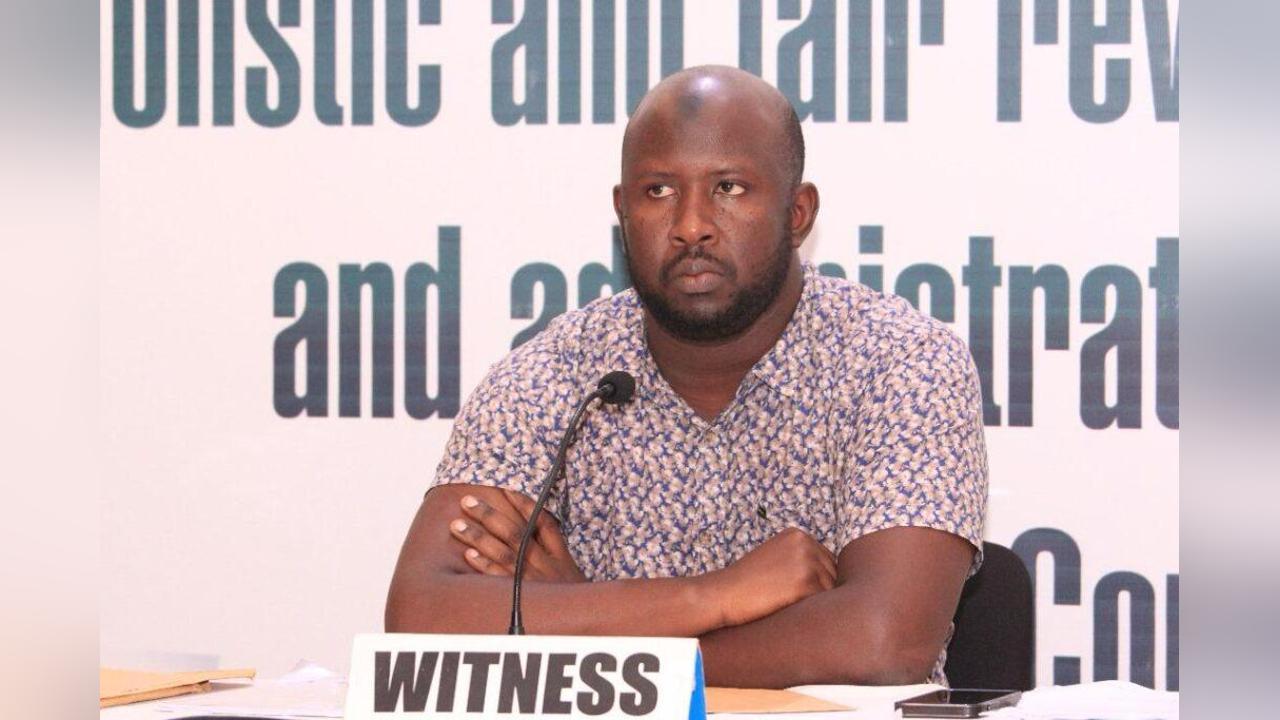Africa-Press – Gambia. Pa Modou Ndow, the acting Licence Manager at the Banjul City Council (BCC), has failed to satisfactorily explain the source of millions of dalasis deposited into his personal bank account, the Local Government Commission of Inquiry heard on Monday.
In March 2025, the commission instructed Ndow to provide concrete evidence proving that the funds deposited into his account were not derived from council resources. At the time, he claimed that the money had been sent to him by his sister living abroad.
Appearing again before the commission on July 28, Ndow submitted a breakdown of remittance transfers purportedly sent through a local bureau de change as proof of his sister’s financial support.
However, Lead Counsel Patrick Gomez challenged the credibility of the document, noting that it lacked authentication and was not presented on the official letterhead of the bureau de change.
“We will admit the document, but it is not sufficient to show it came from the Bureau de Change, “Counsel Gomez said. “You will be required to go back and get documents evidencing financial transactions from the Bureau de Change.”
Upon reviewing the submitted transfers, Counsel Gomez observed that most of the amounts were under D10,000, a point Ndow conceded.
Asked to reconcile the remittance breakdown with his personal bank deposits, Ndow acknowledged that the majority of the funds in his account were not received through the bureau de change. Instead, he claimed his sister sent money through individuals, and in some cases, delivered the funds to him personally.
“But we can only work with what we have, “Counsel Gomez said. “You are the one to provide the evidence. We have seen very huge sums of money in your account, and we need you to guide us through the receipts of money that go into your account.”
“Yes, many of the huge amounts of money she calls for me to receive from someone. Sometimes she came by herself and gave me some money,” Ndow responded.
When asked if the remittance records he submitted would therefore not reflect the actual deposits in his account, Ndow admitted they would not, rendering the reconciliation process futile. He agreed with Counsel Gomez that there was no value in comparing the remittance records against his bank statements.
Counsel Gomez stressed that the commission was particularly concerned about the origin of the funds, given Ndow’s official role overseeing licence payments at the council.
“Looking at your transactions, we have more than a million Dalasi in your account. Every time you will have at least D1.5 million in your account,” Counsel Gomez said to the witness.
He added that the volume of deposits was inconsistent with Ndow’s salary, which could not reasonably account for such financial activity. “You will be depositing a huge sum of money for someone like you who is working for the public, and you are working directly in an area where money is received on behalf of the council to be deposited.”
In response, Ndow insisted that he does not personally handle cash and that his duties are limited to issuing invoices.
But Counsel Gomez countered that, as licence manager, Ndow holds significant influence over the payment process — determining how much businesses owe, how they pay, and conducting the assessments that generate the invoices.
“So if you tell the business owner they have to pay D50,000 a year, that is your discretion,” Counsel Gomez said. Ndow agreed.
In closing, Counsel Gomez emphasized to the witness that this was how he made his money, and no amount of denial would persuade anyone differently.
For More News And Analysis About Gambia Follow Africa-Press






